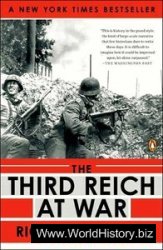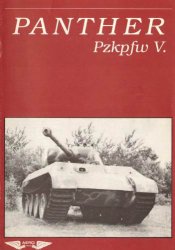The Spanish civil war, which lasted from July 1936 to April 1939, pitted Spain’s existing government, the Republic, against a Nationalist movement led by General Francisco
Franco. The conflict had repercussions far beyond Spain. The Soviet Union sent military equipment and advisers to its allies on the leftist Republican side, while Fascist Italy and Nazi Germany supported the fascist Nationalists with equipment and tens of thousands of troops, and used the situation to test new military technology and techniques. France and Britain, fearful of a wider conflict, gave no aid to the Republic. Reflecting the power of isolationists and the political influence of the anti-Republic Catholic Church, the United States remained officially neutral throughout the war and imposed an arms embargo against both sides.
Most Americans were apathetic toward or ignorant about the Spanish civil war. Two-thirds of those polled in 1937 had no opinion about it. These responses reflected interwar isolationist tendencies and a preoccupation with the Great Depression. Having witnessed the catastrophes of World War I, the great majority of Americans opposed entry into another conflict in Europe. In addition, most Americans in the 1930s were more interested in the economy and their own circumstances than in foreign policy and events overseas.
American support for Franco came largely from Catholics aroused by reports of anticlerical acts committed by the Republic, which was seeking to lessen the power and influence of the Catholic Church in Spanish daily life. The American Catholic Church urged support of Franco, who, with papal backing, was seeking the reunification of church and state in Spain. In addition, many American Catholics were swayed by Franco’s argument that he was fighting for the establishment of democratic government and against encroaching communism and socialism.
Support for the Republic in the United States came especially from Protestants and Jews on the political left. Seeing the conflict as one between fascism and democracy, they expected the Republic to establish a permanent liberal democracy, abolish unification of church and state, and improve education and the rights of women and children. They organized parades and other demonstrations of support for the Republic and raised money for relief supplies. Ernest Hemingway’s novel, For Whom the Bell Tolls, provides a sympathetic account of the Republic’s supporters.
The most radical leftists committed to the Republic volunteered to fight in Spain against Franco. Largely organized by the Communists, the International Brigades, formed to support the Republic’s army, drew men from across Europe and the United States. The most notable American contingent was the Abraham Lincoln Battalion of the XV International Brigade (popularly known as the Abraham Lincoln Brigade). The approximately 3,000 men who volunteered for the Lincoln Brigade from 1936 to 1938 came from a variety of occupational and ethnic backgrounds but what they shared was their passionate support of the Republic’s liberal cause and the fight against fascism.
President Franklin D. Roosevelt and Secretary of State Cordell Hull maintained American neutrality during the Spanish civil war. The president, although later regretful about what he understood to have been a mistaken course of action, was influenced both by Catholics, whose political support he wanted, and by the pervasive anti-interventionism that helped produce the Neutrality Acts of the mid-1930s. In any case, Spain was not among his priorities in the mid-1930s. The State Department, influenced by the British decision against intervention, sought neutrality partly because of concerns that the Soviet-backed and increasingly communist-dominated Republic might lead to the establishment of a communist state. Roosevelt initially urged a “moral embargo” on arms to both sides, and Congress acceded to his subsequent recommendation that the arms embargo of the Neutrality Acts be extended to the Spanish civil war.
As the war continued, American supporters of the Republic demanded lifting the embargo so that munitions and medical supplies could be sent to aid the failing Republican forces. As Franco’s fascist intentions and brutal warfare, including the bombing of civilians, became clearer, others joined the campaign. Secretary of Commerce Harold Ickes said of Hull’s refusal to issue passports to Americans who wanted to serve as ambulance drivers for the Republic, “It makes me ashamed.” Even isolationist senator Gerald Nye, chairman of the Nye committee, urged lifting the arms embargo. But the United States maintained the embargo until the end of the civil war on April 1, 1939, when the Republic surrendered to Franco. For those Americans who actively supported one side or another, passions and animosities provoked by the conflict resonated for years.
Further reading: Allen Guttman, The Wo-und in the Heart: America and the Spanish Civil War (New York: Free Press, 1962); Douglas Little, Malevolent Neutrality: The United States, Great Britain, and the Origins of the Spanish Civil War (Ithaca, N. Y.: Cornell University Press, 1985).
—David Slak




 World History
World History









